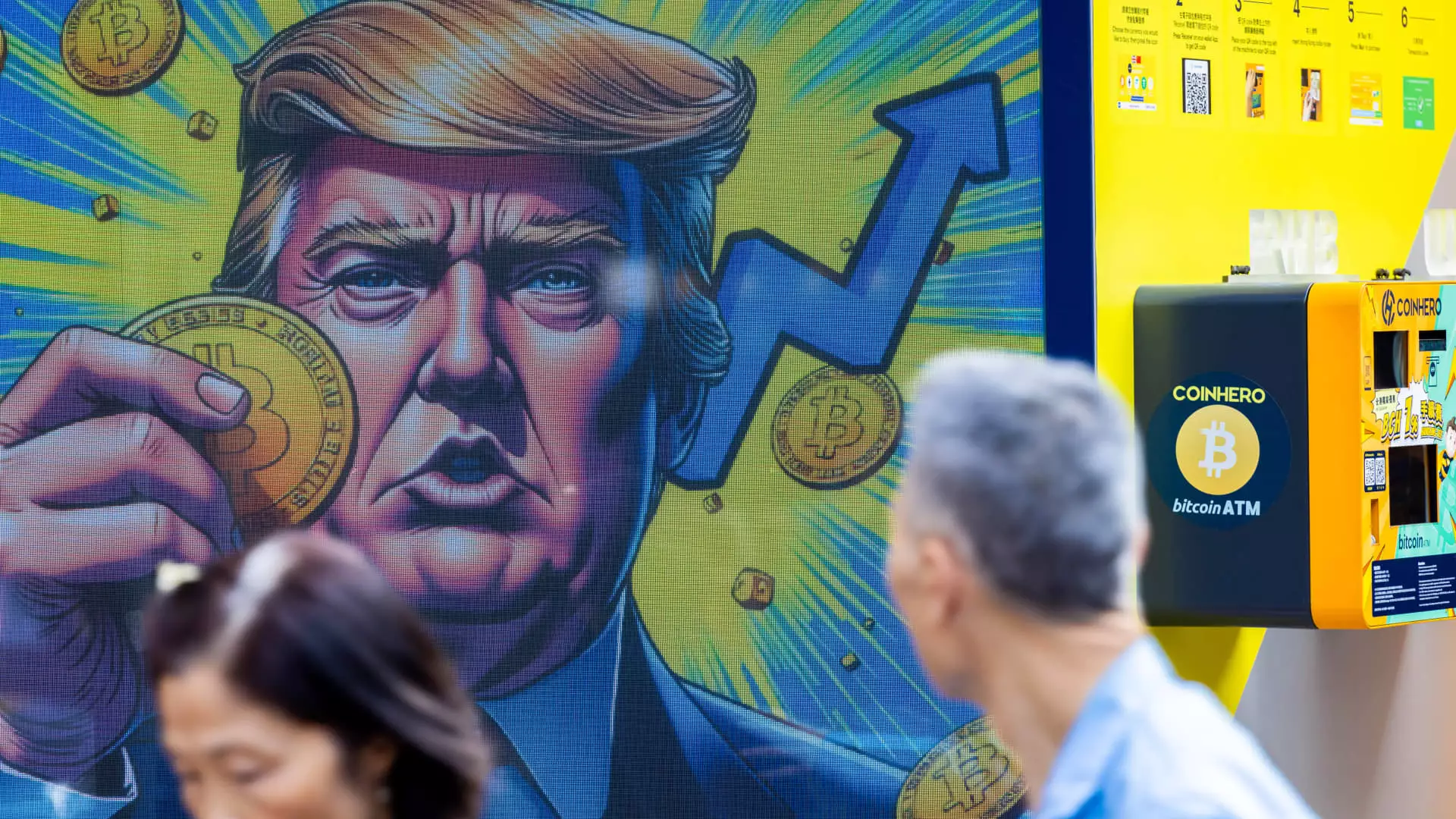The emergence of the $TRUMP cryptocurrency token has sparked a frenzy, netting President Trump and his affiliates nearly $900,000 in trading fees in just two days following the announcement of an exclusive dinner with the top holders of the token. This event, aimed at the 220 largest investors, reflects a startling intersection of politics and the often labyrinthine world of cryptocurrency, and serves as a glaring example of a potential ethical breach that deserves scrutiny. Instead of upholding the long-standing standards of presidential integrity, this transaction has sparked debate over the commodification of political access.
On one level, the $TRUMP token has inflated its market value to a staggering $2.7 billion, primarily driven by speculative purchases rooted in nothing more than internet culture and the whims of meme enthusiasts. Unlike traditional financial instruments, which typically offer tangible collateral, the $TRUMP memecoin thrives on hype and social media buzz, making it a poorly masked attempt to monetize both Trump’s persona and his influence.
Inside the Dinner: Exclusivity Meets Ethical Concerns
The dinner is not just a social gathering; it is a blatant strategy to enrich the President’s coffer under the guise of community-building among cryptocurrency investors. The promotional message, “Have Dinner in Washington, D.C. With President Trump,” deeply troubles any hope that presidential decorum is being upheld. Critics are quick to label this as a “pay-to-play” tactic, where access to the leader of the free world is traded for substantial financial contributions. Even members of Congress, like Senators Chris Murphy and Elizabeth Warren, have condemned the event as a flagrant breach of ethical standards.
Prominent figures like Delaney Marsco from the Campaign Legal Center have pointed out that while the transactional nature of the dinner is morally questionable, it may not be outright illegal. This situation highlights a disconcerting reality: while laws meant to prevent corruption gloss over presidential conduct, such loopholes permit Trump to operate in a realm of ambiguity. The fact that he enjoys a legal space where traditional norms of ethical governance no longer apply is alarming, to say the least.
Criticism: The Disturbing Undercurrent of Insider Trading
Chainalysis reports that since its launch, the $TRUMP token has generated approximately $324 million in trading fees for Trump insiders through a mechanism that benefits the token creators and their affiliates. With around 80% of the token supply controlled by the Trump Organization and its connections, the optics suggest not just a conflict of interest, but the disturbing specter of insider trading.
The token’s in-built rewards structure raises further suspicions. By routing a percentage of every transaction to wallets associated with insiders, it effectively creates a tiered system where the wealthy few stand to benefit the most. Moreover, the dinner contest and its VIP tours reinforce the sense of exclusivity—confidential financial transactions cloaked as public engagement. This can lead to a toxic atmosphere within the cryptocurrency ecosystem, where trust, an invaluable currency, could be forever compromised.
Memecoins and the Corruption of Political Discourse
Memecoins like $TRUMP represent a broader trend troubling for our political discourse. These tokens have become symbols of a growing speculative bubble, often devoid of substantive backing or ethical considerations. The reliance on such digital assets draws into question the efficacy of regulation and the necessity of oversight in the cryptocurrency market. As these tokens gain traction, they risk overshadowing well-governed financial instruments and established political norms.
Adding to the complexity, multiple observers—including independent researchers—note that several of the top $TRUMP token holders have connections to foreign exchanges and jurisdictions that conflict with U.S. financial regulations. This complicates efforts to ensure transparency and economic fairness, leaving American investors vulnerable to exploitation. As the crypto industry reportedly helped propel Trump into power with millions in backing, the revelations of high-level investors possibly skirting the law should not be taken lightly.
The Trump Family: Trailblazing in the Wrong Direction
The Trump family’s foray into cryptocurrency through the $TRUMP and $MELANIA coins alongside initiatives like World Liberty Financial embodies an unsettling trend. While claiming to champion innovation, their output appears more intent on siphoning profits than adding real value to constituents’ lives. With robust ties to the cryptocurrency industry, they represent a dangerous blend of entrepreneurial spirit and ethical ambiguity—certainly not the hallmark of responsible leadership.
In a rapidly changing world where financial technology and political tactics are becoming increasingly intertwined, Trump’s actions reflect an alarming shift. Instead of reinforcing public trust in our institutions, this trajectory lays bare a willingness to exploit political power for personal gain. The implications could be profound; as voters become aware of these schemes, the integrity of our democratic processes hangs in the balance.

